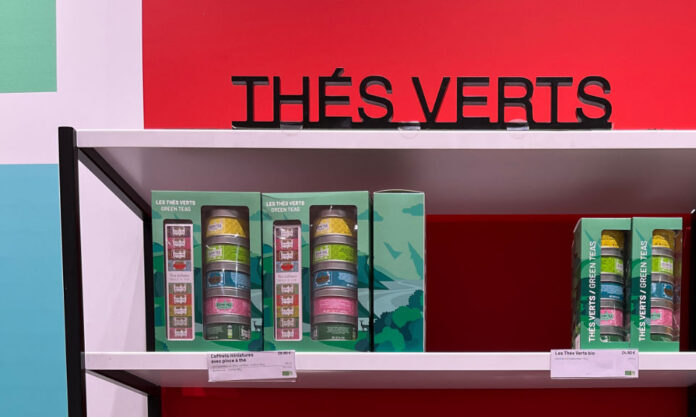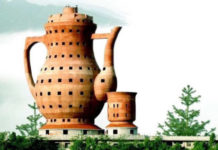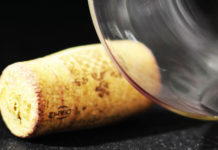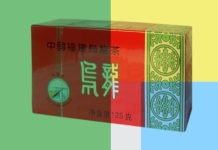Let me state that The Nanjinger has not paid for me to be here. Nanjing is far too far away and the expenses for such a glamorous patch could easily spiral beyond control. I write from Juan Les Pines on the French Riviera. You can almost skip a stone to Cannes in the west and Monaco to the East. Every town along here has significance to the grand tour, the lost generation or the jet set, but also to a contented local populace. This is still more French than the French Concession.
We’re self catering but, except for baguettes, everything in the supermarket costs a nose bleed.
It’s a family holiday, and family holidays do not always yield tea. Last winter, in Guangdong’s Zhuhai, we simply couldn’t score any, with New Year shuttering the stores and the markets. In this French seaside town, I’d already searched every street in vain for a Salon de Thé, finding nothing better than a shop called CBD Yum Yum. Not too promising.
But today, in Nice, I got real leaf tea!
Actually, in a French city, I would expect to find several such stores. For all that the UK is the nation synonymous with tea, France’s tea scene benefits from the absence of that complacent inertia and inverse snobbery; when French consumers choose tea, they do so with a willingness for adventure and education.
In Nice’s older streets, I might have found an outlet more independent and quaint than this one. But air-conditioned shopping malls make sense when children’s legs are tired and there’s a heat wave raging outside.
The staff in Kusmi Tea were very friendly and quite willing to sell in English. Yes, I have French enough to complete the purchase, but real communication is better.
Kusmi cooperates with Nestlé for its range of capsules, but is otherwise free of the conglomerate. Alongside genuine loose-leaf classics, such as “Golden Yunnan” [云南滇红] and “Pai Mudan” [白牡丹], the chain’s range of teas is mostly in the health and lifestyle vein, blends channeling vibes such as “AquaSummer”, “Be Cool” and “Feel Zen”. Additionally, there is a breakfast blend replete with tricolore livery. Well why not, except that this is a country with a topography that makes tea-growing a possibility.
Ruling out the dried fruit and flower tisanes, and the blends, I smelt the tea in the remaining tins, revisiting aromas such as Darjeeling First Flush that I haven’t smelt since long before COVID.
I was never going to buy Chinese tea here, and most of the greens did smell stale without refrigeration or air-tightness, but not too stale.
I opted to buy hōji-cha, the Japanese green tea which has been roasted in a porcelain pot. The price was pretty steep; €21 for 100g is like ¥85 for one liang [两]. But this stuff is actually quite hard to find in Nanjing, nevermind Wales.
The staff were charming, though sad to be working here instead of swimming in St. Tropez. They reminded me of myself working at a Whittard of Chelsea in (a similar shopping mall in) Cardiff.
Returning to the hotel room to drink the hōji-cha, I was gratified to smell that aroma again, like roasted buckwheat tea with a hint of volatile marijuana. However, I made the mistake of using tap-water. Drinkable or not, this water has an off-putting taste. No wonder the locals buy huge bottles of Evian and Contrex at the supermarket. I’ll try the tea again with tomorrow’s croissant. And there’s plenty of time; I can keep drinking it in Wales.
Yes, the Strainer before this one was all about stress. Let’s just say that couldn’t be less relevant right now.












